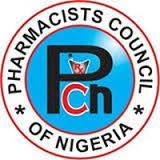Doctors Without Borders/Médecins Sans Frontières (MSF) has expressed concern over the rising cases of cholera in Zamfara State, where more than 1,500 suspected cases have been recorded in health facilities it supports between mid-June and early August.
MSF’s medical coordinator in Nigeria, Dr. David Kizito, said “This outbreak is unfolding in a context of insecurity, displacement, and limited access to clean water and sanitation – exacerbated by the rainy season.
Cholera, endemic in Nigeria for decades, typically spikes between April and October, with floods contaminating water sources and accelerating its spread. The disease, which causes severe diarrhoea and vomiting, can kill within hours if untreated.
MSF, in a statement said to contain the outbreak, MSF said it has scaled up water, sanitation, and hygiene (WASH) interventions in hotspot areas such as Shinkafi, Zurmi, and Talata Mafara. The Zamfara State Ministry of Health (MOH), with support from MSF and other humanitarian actors, activated a Public Health Emergency Operations Centre (EOC) and established cholera treatment centres (CTCs) and units in affected LGAs.
Between June 16 and August 5, Zurmi CTC reported 562 suspected cases, mainly from Yambuki, Kadamusa, and Zurmi town. In Shinkafi General Hospital, about 401 cases were treated between July 11 and August 5, with additional cases coming from Isa LGA in Sokoto State. At the Talata Mafara treatment unit, more than 600 cases were recorded from July 1 to August 8, including patients from Anka and Bakura LGAs, the statement explained.
MSF’s head of mission in Nigeria, Dr. Ahmad Bilal, advised residents to adopt preventive measures such as boiling water before drinking, regular handwashing, avoiding open defecation, and ensuring cholera vaccinations are up to date.
The humanitarian organisation warned that cases may continue to rise if urgent preventive action is not taken.
MSF head of mission in Nigeria, Dr. Ahmad Bilal, said „Ensuring access to safe drinking water through boiling, practising regular handwashing, consuming freshly prepared meals, avoiding open defecation, and keeping vaccinations up to date are straightforward yet highly effective measures to safeguard yourself and your family from preventable diseases.
As cholera continues to threaten lives across Zamfara, MSF expressed commitment to working alongside communities, health authorities, and other partners to ensure timely treatment, prevention, and support.
“MSF emphasises the importance of setting up decentralised oral rehydration points and enabling all existing primary healthcare centres to treat mild and moderate suspected cholera cases.
„This will ensure timely treatment, reduce complications, and allow prompt referral to dedicated CTCs in hospitals such as Zurmi, Shinkafi, and Talata. Moreover, urgent cholera vaccination is needed to halt transmission and save lives. The participation of everyone in Zamfara is needed to reduce the spread. No one should die from a preventable disease,“ Dr. Kizito said.











